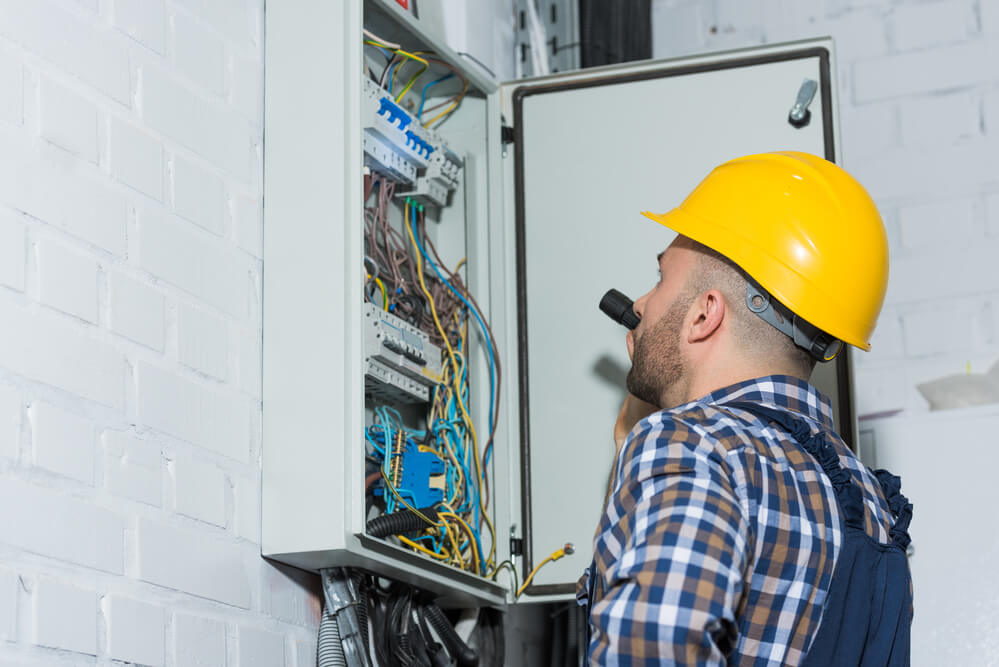How Many Electricians Die a Year in the UK?


Everyone has been told at one time or another to not put their finger in a socket. Electricity is all around us and incredibly dangerous. Despite all the training and safety precautions taken over the years, many electricians have lost their lives. Midas Electrical Ltd, an electrician in Essex, has shared some information on the details and hazards of this profession.
Electricians work with electricity on a huge range of projects. This can be anything from residential, business, or even industrial. Electricians are typically divided into four areas of expertise: installation, maintenance, electro-technical, and machine repair.
Installation electricians focus on network and power systems in homes and business. This means getting power throughout the building in question while also ensuring the other basic system like lighting, fire protection, and security is up and running.
Maintenance electricians are there to make sure there isn’t to much work for the others! These professionals go around checking to make sure everything is up and running. They are often doing minor repairs rather than huge or new installations.
Also called panel builders, electro-technical electricians focus on the primary control panels. These panels are used at the residential, business, and government level, and are used as the primary point of contact for the rest of the grid.
Also called rewind electricians and often thrown into the same category as highway system electricians, machine repair electricians focus on electrical motor, machinery, and traffic management systems. When a transformer is blown, these are the professionals that are called.
Over the 2010 to 2016 period, 26 electricians lost their lives in the UK. Specifically, it was installation of electrical systems that served as one of the most dangerous jobs in the United Kingdom. Those hundreds, even thousands, of volts that power your home and work can cause all sorts of problems in the forms of fire and electrocution. There is a reason electricians are required to do so much training and reimbursed so much for their labor.
Electrical fires make up the largest portion of damage and fatalities, with 15,432 occurring in England over 2015/2016. This caused around 1380 deaths and injuries, with over 80% of them caused by appliances or other products.
There are multiple qualifications electricians need to go through in the United Kingdom, such as the Domestic Electrician and Professional Electrician courses for a start. There is also the Electrotechnical NVQs Levels 2 through 3 as well.
The Domestic Electrician course is for those that want to start getting into the electrician career path but don’t have any previous electrical experience. These classes are designed to give hands-on knowledge and other practical skills to get them started.
The Professional Electrician course is a step higher, but someone who enrolls into this type of course doesn’t necessarily need previous experience. Like the domestic course, this one can be taken by anyone and is designed to give people a complete electrical certification in the UK.
The NVQs are a series of qualifications needed that reflect the responsibilities and roles of the specific sector. Electrotechnical refers to the installations of electrical systems and can be specified depending on the building, service, or machinery in question.
Even if you aren’t a electrician, there are a few safety tips you can use to keep you and your family safe. Some of these tips are common enough knowledge but should never be overlooked.
One common question is whether you should attempt to repair damaged power cords. This depends on the level of damage. If the internal parts of a cords are all ripped up, it’s best to just throw it away. If there is only some minor fraying or exposed wiring inside, than electrical tape can be used to seal it.
Plugging too many things into an outlet can potentially overload it, flip the breaker, or even cause spark, leading to a fire. If you need more plugs, try using an energy-saving power strip that can safely accommodate whatever you need it for.
If absolutely needed, extension cords can be really useful, but they are notable for being a tripping hazard along with being prone to getting broken or frayed over repeated uses. The general rule of thumb is to avoid extension cords as much as you can.
Approximately 26 electricians died over the course of 2010 to 2016, with non-electricians accounting for nearly 1400 deaths in 2015-16 alone. Electricians are required to go through multiple training classes such as the NVQ, Domestic, and Professional courses to ensure they know how to work with electricity safely.